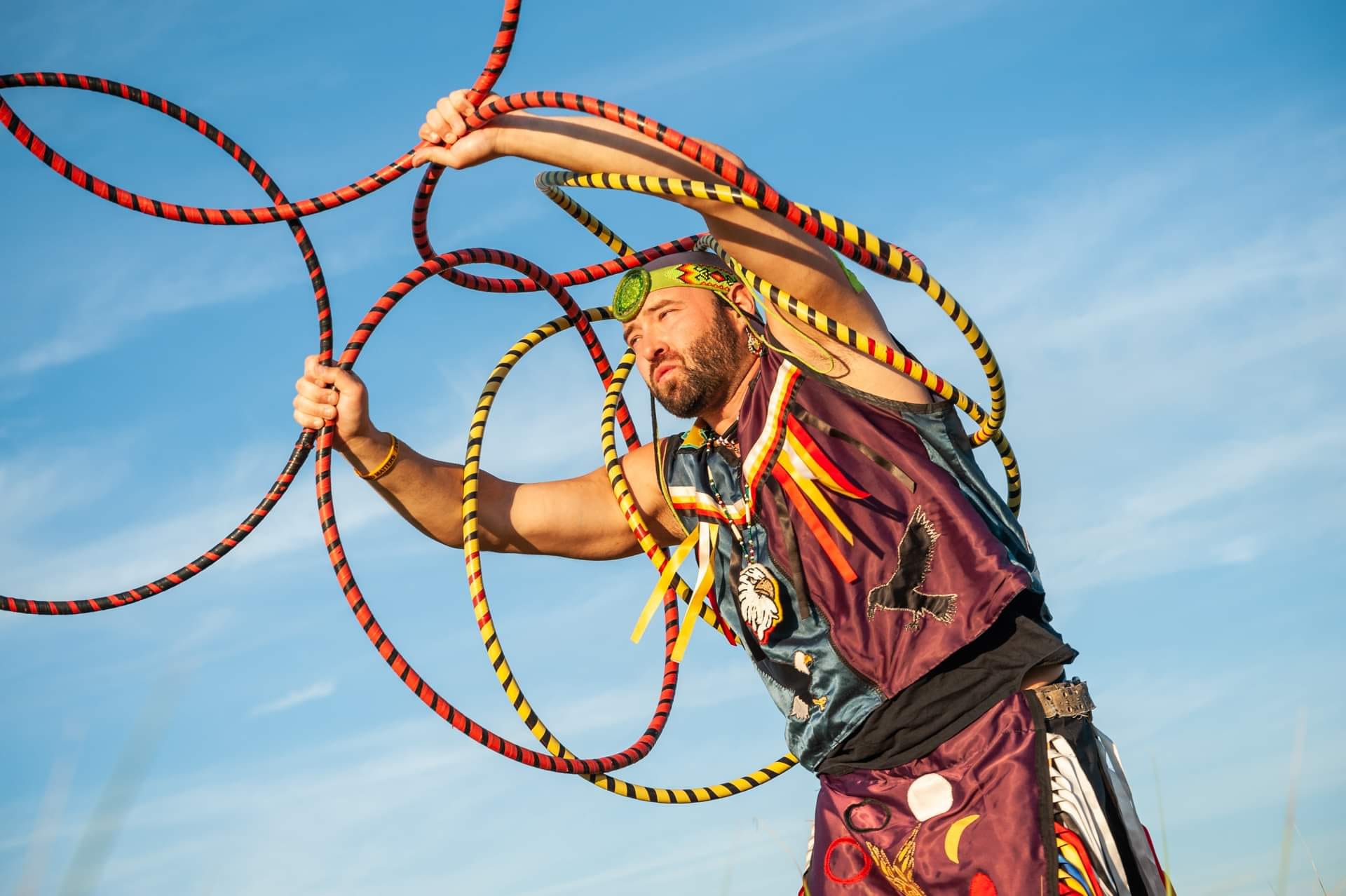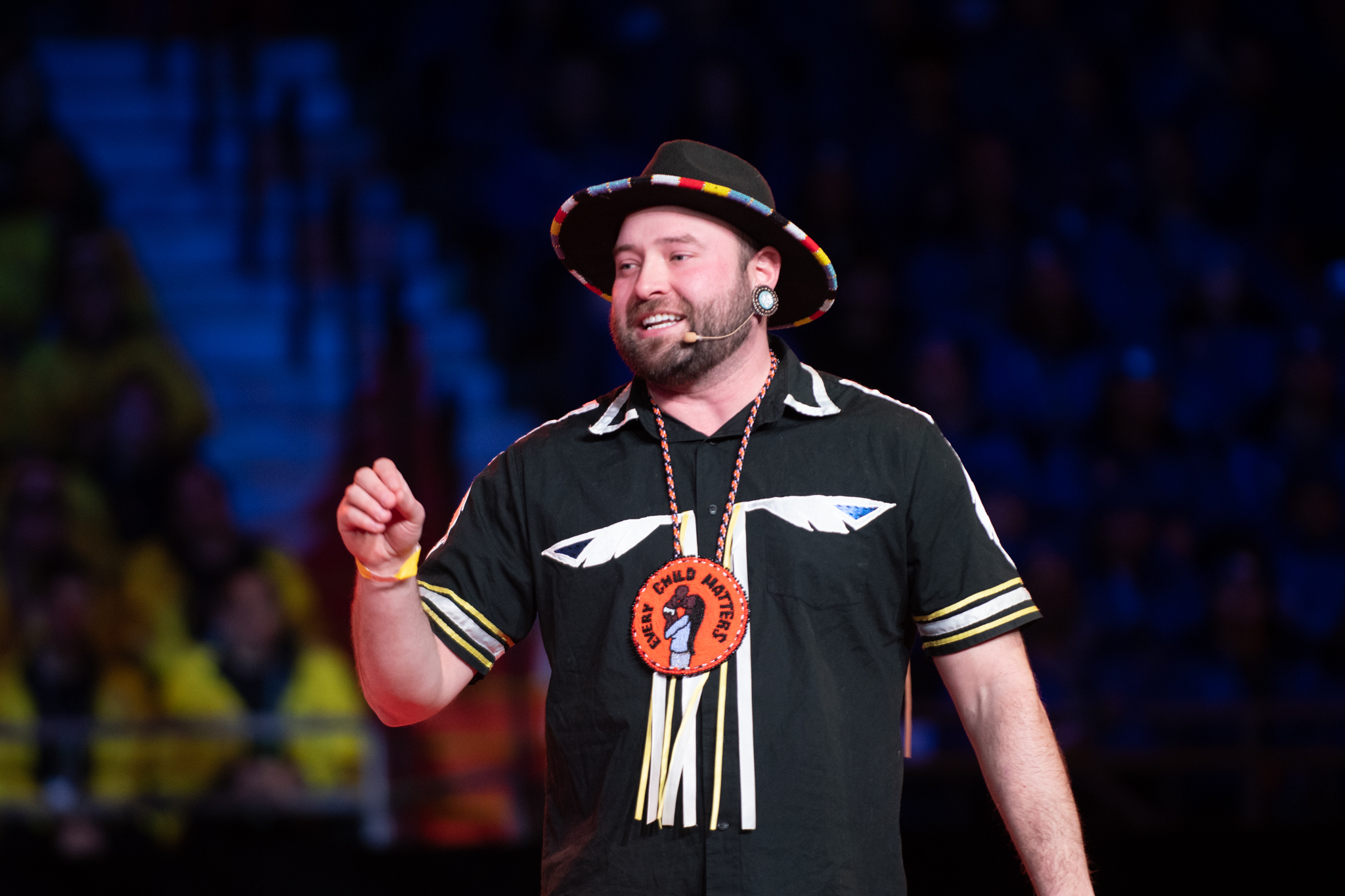 Sport and Leisure Management, 2012
Sport and Leisure Management, 2012
HC: You graduated from the Sport and Leisure Management program in 2012. What initially drew you towards that program?
Well, my dream growing up was to be a professional football player. After graduating from high school, I went to the University of Manitoba to play football, and I was even part of a Vanier Cup–winning championship team. But I was only 18, and my high school education hadn’t really prepared me for the rigors of university. Balancing courses, labs, practices, film study, and workouts was overwhelming and my maturity level just wasn’t there yet. As much as I loved playing football, I was struggling with the rest of it. During my second year, I heard rumors that Holland College was starting a football program. Fate worked out, and I became the first major recruit to the football team!
The Sport and Leisure Management program felt like the right fit for me. I’ve always wanted to help people through fitness, and the program gave me that chance while still giving me the opportunity to chase my football dream. The program taught me how to build a career that supported others’ health and also helped me protect my own body after years of intense sports. Holland College really helped me find my motivation and focus again.
HC: Tell us more about your journey following graduation.
I was extremely proud to be a valedictorian for my graduating class. That was a big moment in my life because Holland College gave me so much and the instructors were so invested in my success. When I was at university, I often felt like a number in a lecture hall, but at Holland College they knew my name and supported me through the challenges of being a student-athlete.
After graduation, while I continued chasing my pro football dream and worked jobs in gyms, schools, or youth programs. Over the next decade, I held roles in program management, youth support, and personal training. For about six years, I was a trainer at UPEI, and I also worked with the Mi’kmaq Confederacy’s Aboriginal Sports Circle as a Project Coordinator. In that role I led Team PEI to Toronto for the North American Indigenous Games where we brought home medals – a remarkable feat for PEI!
I still use my training and skills from Holland College every day, supporting youth in the community and teaching them about fitness and wellness. I love being able to pass on that knowledge, just like it was passed on to me.
HC: You’ve had such an interesting career so far. Tell us more about your journey to date?
If you look at my resume, you’ll see personal trainer, youth worker, coach, program coordinator – and they all connect back to what I learned as a student. Even now, I still slide that education into everything I do.
Eventually, I pivoted myself from personal training into more youth-focused and community roles where I used my skills in broader ways. Coaching, mentoring, teaching – whether it’s in a volunteering or professional capacity – all still come from that background in fitness and wellness.
I’m passionate about supporting youth and promoting physical fitness in a holistic way – teaching not just about strengthening the body, but also about nurturing the mind and spirit through culture and traditions. I did further training to become a Community Wellness Warrior, which is a personal training certification using a more holistic, culturally grounded approach. As a Mi’kmaq man from Lennox Island who is comfortable using his voice, I know how important it is for our communities to have strong, sober, positive male role models who are walking the red road of life, especially for youth. Whenever I am invited to speak, whether it’s a Holland College graduation or a youth circle, I share my truth and I speak from the heart. That authenticity has built trust in the community, and I’m really proud of that.
When my professional football dreams ended, it opened the door to coaching and creating opportunities for the next generation. In 2020, I was honoured as Canada’s National Indigenous Coach of the Year for my work in flag and tackle football. Since then, I’ve continued coaching, including helping launch the West Prince Football Team, which gives Lennox Island youth another chance to play and grow in the sport.
HC: What are you working on these days?
Right now, I’m working in the Melkiknay program as the Youth Crime Prevention Project Manager. Melkiknay is a Mi’kmaw word meaning I am strong, and the program is a youth-focused initiative in Lennox Island First Nation. In the evenings, I’m pursuing my teaching certificate, and I also contribute to a regional climate strategy that integrates Indigenous knowledge with environmental stewardship.
HC: Has there been a particularly difficult moment in your career?
Absolutely. Life’s path is never smooth. After graduating, I was fully committed to chasing my football dream. I was recruited to play for a semi-pro team in Hamilton, Ontario. I was also trying out for CFL teams, and the Hamilton Tiger-Cats were keeping an eye on me as a recruit.
My friend Ryan and I eventually moved to Toronto to play year-round and stay ready for tryouts. We found what we thought was a solid apartment, and we sent our deposits that we had worked so hard to save. Unfortunately, it was a scam, and we ended up homeless in Toronto, living in my truck. This situation hugely impacted my trust in people.
Despite our circumstances, I managed to get to Buffalo for a tryout, and I did really well, so I thought I had made it. But at the last cut, they took 54 players, and I was number 55. I drove back to PEI feeling heartbroken, defeated, with no money, and barely any faith left in people. It took me months to recover, but that experience taught me resilience. We all get knocked down on the ground, and we all have to learn how to pick ourselves up and keep going. It could be slow, but the most important thing is to just keep moving forward, because everything happens for a reason.
HC: What has been the most rewarding aspect of your career?
There are so many rewards, but the biggest is watching the youth I work with grow up and succeed. I’ve been coaching football for over 10 years now, and during that time I’ve watched kids grow from nine-year-olds just learning the game to young adults being recruited to play for the Holland College football team. It’s one of those proud moments – seeing a child you supported grow into someone chasing their dreams, and knowing they still feel your support behind them. I’ve coached so many youths that I’ll sometimes run into someone who will say, “I just want you to know you had a huge impact on my life. You believed in me, and you knew I could excel.”
Those moments really stick with you, even though you don’t think about them every day. I had great mentors in my life who supported me when I was younger and helped me reach the highest levels of my athletic career, so now it feels like it’s my turn in my life, professionally and personally, to give back and provide that same support to the next generation.
In coaching and personal training, you often hear people’s struggles. I’ve lost many close friends to mental health issues, and often times, giving other people a safe, trusting environment can make all the difference. A warm smile, a hug, or a listening ear really can change someone’s path.
HC: You’ve published a children’s book, and you’re also involved with Indigenous performing arts – tell us more about that.
About five years ago, I had a vision that I needed to write a children’s book about my own experiences growing up. I have pale skin, green eyes, and lighter hair, so I didn’t necessarily look like my peers in the community, and for me that created a lot of pain and confusion when I was younger. I didn’t feel accepted or like I fit in on either side, Indigenous or non-Indigenous.
The book, which is called The Creator’s Plan, is about that struggle and about belonging. Showing kids that love, ceremony, and culture are for everyone in the community, no matter how they look. It was recently picked up by the Confederation Centre of the Arts and adapted for the stage and is being performed from July 7-Aug 1 at The Mack!
The show is performed in collaboration with The Mi’kmaq Heritage Actors, a troupe I helped form. Over 30 youth participate, sharing drumming, dancing, storytelling, and pride in their culture. It wasn’t so long ago that practicing our culture was illegal. Through about 100 performances each summer, we reclaim that heritage and give young people a place to celebrate their culture and who they are.
HC: What advice would you give to new alumni entering the workforce?
My biggest piece of advice would be to not get discouraged if life doesn’t go exactly how you imagined. I’m 36 now, and I’m still figuring out what I want to be when I grow up! The important thing is to use your skills, keep learning, and find meaningful work that makes you happy.
You might not work in exactly the job you planned, but those skills you learned will be useful, just like I still use mine today, even though I’m not a full-time personal trainer anymore. Education never ends. Carry all those lessons and skills with you and keep moving forward.

HC: Any final words for us?
My time at Holland College changed everything. After leaving university, I was an 18-year-old who was struggling to find my motivation and direction. Holland College gave me a supportive, personal classroom environment where people truly cared and were invested in you as both a person and a student. Incredible instructors like Jennifer Redmond, Wyatt Inman (my “Yoda”), and Nora Bell MacEwan made such a massive impact on me. They kept me on track when I felt like dropping out, showed me possibilities I couldn’t see for myself, and those relationships have lasted to this day. I still reach out to them, and they still cheer me on.
Holland College didn’t just give me a diploma, it gave me another community, a network, and a second chance. Holland College and the people there created that space and opportunity for young people to listen and learn from mentors, knowledge keepers, and individuals with tremendous skills and wisdom. And in reflecting on this, I’ve realized I’ve grown into a similar role – now I’m the one focused on giving back and guiding the next generation.